It's unsettling, isn't it? That feeling of uncertainty about the future, especially when it comes to something as vital as our financial security. I remember when my grandfather, a carpenter, lost his business during a downturn years ago. Seeing his worry, his quiet frustration, it left a mark on me. It taught me that economic times can be unpredictable and that feeling prepared, even if it’s just a little bit, can make a world of difference. Lately, with headlines full of talk about potential recessions and economic shifts, that feeling of wanting to be prepared has come back strongly. That’s why I've put together this curated list of books. These aren't dry textbooks; they're stories, analyses, and personal accounts that aim to shed light on what's happening, why it’s happening, and what we can do to navigate it. My hope is that, together, we can gain a clearer understanding of the challenges ahead and feel a little more empowered to face them.
House of Debt: How They (and You) Caused the Great Recession, and How We Can Prevent It from Happening Again
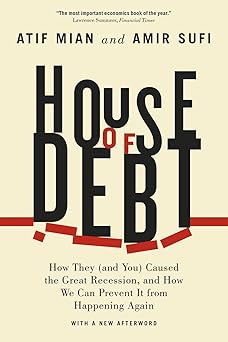
The story behind the Great American Recession is one of staggering debt and devastating consequences. Between 2000 and 2007, the total amount of debt for American households doubled to $14 trillion, a stark increase that led to a catastrophic collapse in 2007. The numbers are staggering - eight million jobs were lost, and more than four million homes were foreclosed upon. It's hard not to think of the countless families who lost their homes, their livelihoods, and their sense of security. As I reflect on this period, I'm reminded of the countless hours I spent talking to families who had been affected by the recession, listening to their stories of struggle and hardship. I saw firsthand the devastating impact that excessive debt could have on individuals and communities. The economic experts, Atif Mian and Amir Sufi, shed light on the role that household debt played in the Great Recession, and their research is both sobering and enlightening. They argue that the policies in place at the time were too focused on protecting banks and creditors, rather than addressing the root cause of the problem - excessive debt. By examining the data, Mian and Sufi demonstrate that increasing credit flow is not the solution to this problem, as it only leads to more foreclosures and a vicious cycle of debt. Instead, they propose a direct attack on debt, including more aggressive debt forgiveness and new mortgage contracts that prioritize risk-sharing. This approach may seem daunting, but it's a desperately needed solution to the complex economic problems we face today. By understanding the causes of severe recessions and the devastating consequences of excessive debt, we can begin to build a better future for ourselves and future generations.
Discover this book on Amazon (affiliate link)
The Money Illusion: Market Monetarism, the Great Recession, and the Future of Monetary Policy
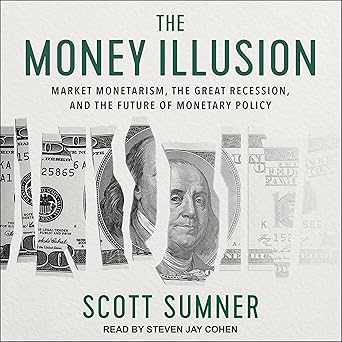
The idea that the Great Recession was caused by a simple yet drastic event may seem far-fetched, but a closer examination reveals a more nuanced truth. A devastating economic crisis like the one we experienced in 2008 can have a lasting impact on our understanding of what went wrong and how to prevent it in the future. In the past, when the economics community was reevaluating its views on the Great Depression, a similar reexamination is happening now. Renowned monetary economist Scott Sumner presents a compelling case that the consensus around what caused the Great Recession is largely incorrect. Instead, the root of the problem lies in the drastic decline in nominal GDP, the sum of all nominal spending in the economy, which the Federal Reserve inadvertently allowed to plummet. This perspective, rooted in standard macroeconomic concepts, offers a fresh and accessible perspective on how monetary policy can be used to create a stable environment for a market economy to thrive. It's a thought-provoking idea that encourages us to think differently about the role of monetary policy and its potential to mitigate economic crises. By listening to this audiobook, we can gain a deeper understanding of the complexities of economic policy and the importance of reevaluating our assumptions about what went wrong in the past.
Discover this book on Amazon (affiliate link)
The Forgotten Depression: 1921: The Crash That Cured Itself
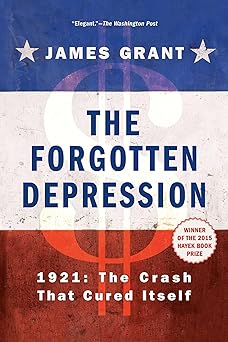
In 1920-1921, the United States faced a deep economic slump that was largely ignored by the government. To address the issue, Woodrow Wilson and Warren G. Harding introduced policies that most economists of today would call conservative. They balanced the budget and raised interest rates, without implementing any stimulus measures. Despite these actions, the economy began to recover by late 1921. However, the economy took a drastic turn by 1929, as the Hoover administration adopted the same policies that Wilson and Harding had previously declined. One of the key factors that contributed to this downturn was the government's attempt to prop up industrial wages. This effort, though well-intentioned, ultimately had the opposite effect, turning a bad recession into America's worst depression. The story of the forgotten depression serves as a reminder that government intervention can sometimes have unintended consequences. By studying this period in history, we can learn valuable lessons about how to respond to economic downturns, and perhaps avoid some of the pitfalls that led to the Great Depression.
Discover this book on Amazon (affiliate link)
The Courage to Act: A Memoir of a Crisis and Its Aftermath
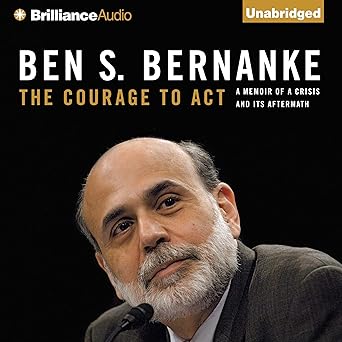
The memoir that lays bare the inner workings of the Federal Reserve during one of the most pivotal moments in modern economic history is a story of courage, resilience, and the unwavering commitment to protecting the American economy. It's a tale that begins with the unassuming beginnings of its protagonist, Ben Bernanke, who rose from a humble rural South Carolina childhood to become a renowned professor and eventually, the chair of the Federal Reserve, a position that would test his mettle like never before. When the housing bubble burst in 2007, Bernanke found himself at the helm of a crisis that would threaten the very foundations of the global financial system. With the fate of the world hanging in the balance, he worked tirelessly with two U.S. presidents to prevent a catastrophic collapse, employing every tool at his disposal to keep the economy afloat. Through his harrowing experiences, Bernanke provides an unparalleled perspective on the American economy since 2006, revealing the creative problem-solving, political maneuvering, and personal sacrifices that were necessary to navigate the treacherous waters of the Great Recession. By sharing his story, Bernanke humanizes the often-maligned world of high finance, demonstrating that even in the most trying of times, courage, compassion, and a steadfast commitment to doing what is right can lead to extraordinary outcomes.
Discover this book on Amazon (affiliate link)
The Housing Boom and Bust
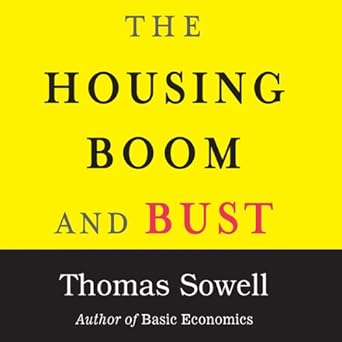
The Housing Boom and Bust is a thought-provoking book that delves into the complexities of the financial crisis that shook the world. I remember when I first heard about the crisis, many of my friends and colleagues were struggling to make ends meet, and it felt like the entire economic system was collapsing around us. The author's thesis is that there was no single event that set off the crisis, but rather a series of questionable decisions made by individuals and institutions over several years. As the housing market began to fluctuate, financial institutions started to invest in securities based on housing prices, creating a snowball effect that ultimately led to the collapse of the market and the downfall of many financial institutions. The author's goal is to untangle the web of events that led to the crisis and explore the measures being taken to address it. One of the most striking aspects of the book is its examination of the moral dilemma that arises when policymakers are forced to make tough decisions to stabilize the economy. The author raises important questions about the role of government intervention, the consequences of deregulation, and the long-term implications of these actions. Through the author's narrative, you'll find yourself grappling with the complexities of the crisis and its aftermath, and perhaps even questioning your own assumptions about the nature of economic stability.
Discover this book on Amazon (affiliate link)